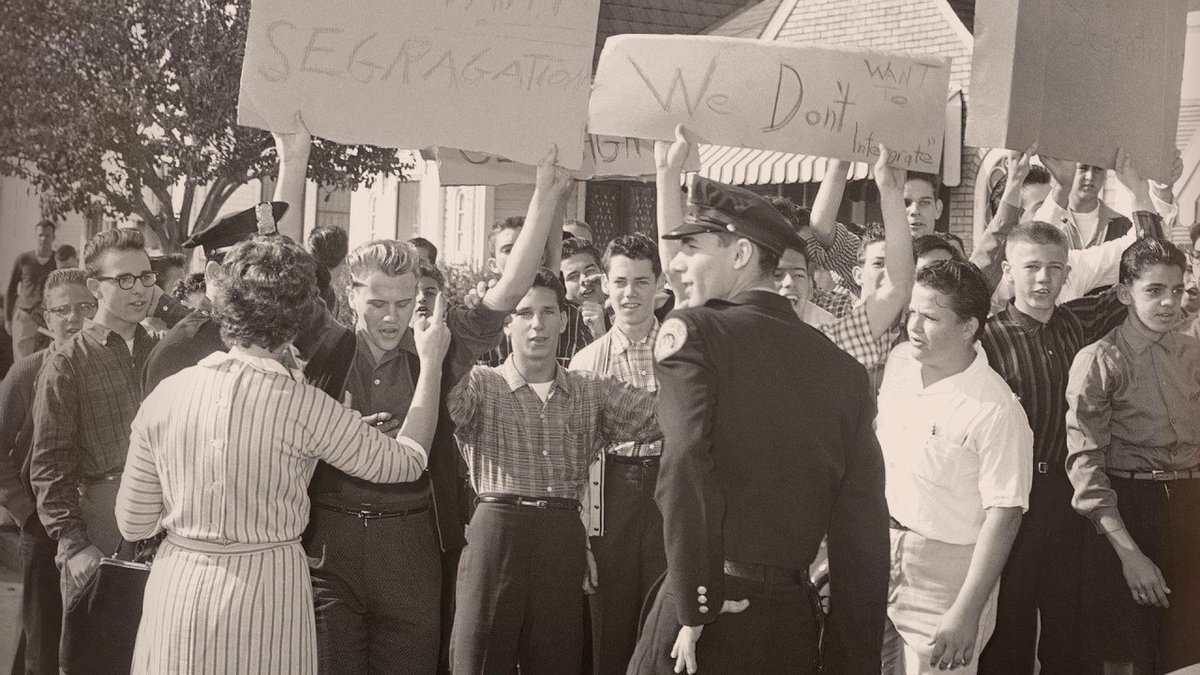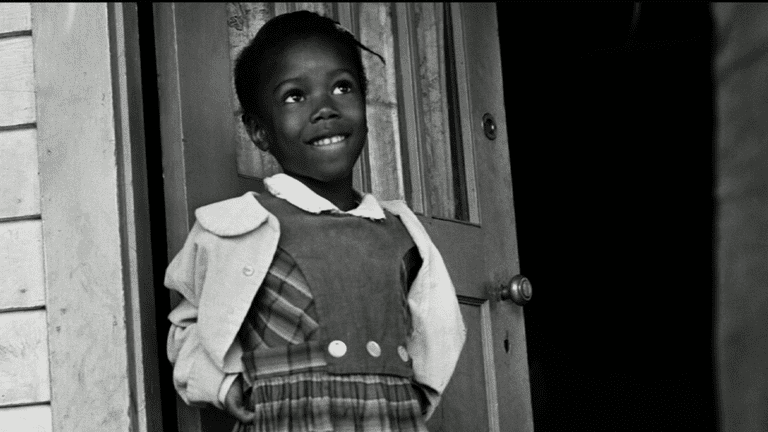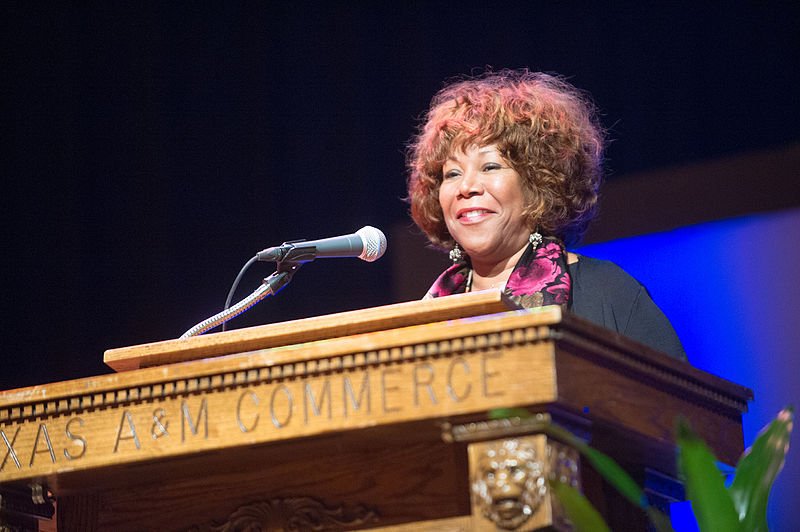& #39;As soon as Bridges entered the school, white parents pulled their own children out; all the teachers except for one refused to teach while a black child was enrolled. Only one person agreed to teach Bridges and that was Barbara Henry. https://twitter.com/marinamaral2/status/1194966298444419072">https://twitter.com/marinamar...
That first day, Bridges and her mother spent the entire day in the principal& #39;s office; the chaos of the school prevented their moving to the classroom until the second day.
On the second day, however, a white student broke the boycott and entered the school when a 34-year-old Methodist minister, Lloyd Anderson Foreman, walked his five-year-old daughter Pam through the angry mob, saying, "I simply want the privilege of taking my child to school ..."
A few days later, other white parents began bringing their children, and the protests began to subside.
Yet, still, Bridges remained the only child in her class, as she would until the following year.
Yet, still, Bridges remained the only child in her class, as she would until the following year.
As Bridges describes it, "Driving up I could see the crowd, but living in New Orleans, I actually thought it was Mardi Gras. There was a large crowd of people outside of the school. They were throwing things and shouting, and that sort of goes on in New Orleans at Mardi Gras."
Former United States Deputy Marshal Charles Burks (one of the Marshals in the photo) later recalled, "She showed a lot of courage. She never cried. She didn& #39;t whimper. She just marched along like a little soldier, and we& #39;re all very very proud of her."
Every morning, as Bridges walked to school, one woman would threaten to poison her, while another held up a black baby doll in a coffin; because of this, the U.S. Marshals who were overseeing her safety allowed Bridges to eat only the food that she brought from home.
Child psychiatrist Robert Coles volunteered to provide counseling to Bridges during her first year at Frantz. He met with her weekly in the Bridges home, later writing a children& #39;s book, The Story of Ruby Bridges.
Coles donated the royalties from the sale of that book to the Ruby Bridges Foundation, to provide money for school supplies or other educational needs for impoverished New Orleans school children.
The Bridges family suffered for their decision to send her to William Frantz Elementary: her father lost his job as a gas station attendant; the grocery store the family shopped at would no longer let them shop there; her grandparents were turned off their land.
She noted that many others in the community, both black and white, showed support in a variety of ways. A neighbor provided her father with a new job, and local people babysat, watched the house as protectors, and walked behind the federal marshals& #39; car on the trips to school.
It wasn& #39;t until Bridges was an adult that she learned that the clothing she wore to school in those first weeks at Frantz was sent to her family by a relative of Dr. Coles.
She says her family could never have afforded the dresses, socks, and shoes that are documented in photographs of her escort by U.S. Marshals to and from the school.
Bridges, now Ruby Bridges Hall, still lives in New Orleans with her husband, Malcolm Hall, and their four sons.
Further reading https://www.biography.com/activist/ruby-bridges">https://www.biography.com/activist/...

 Read on Twitter
Read on Twitter






